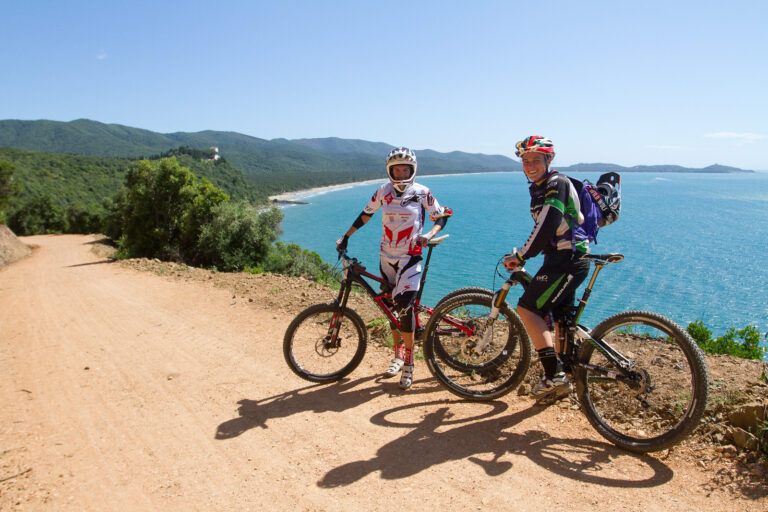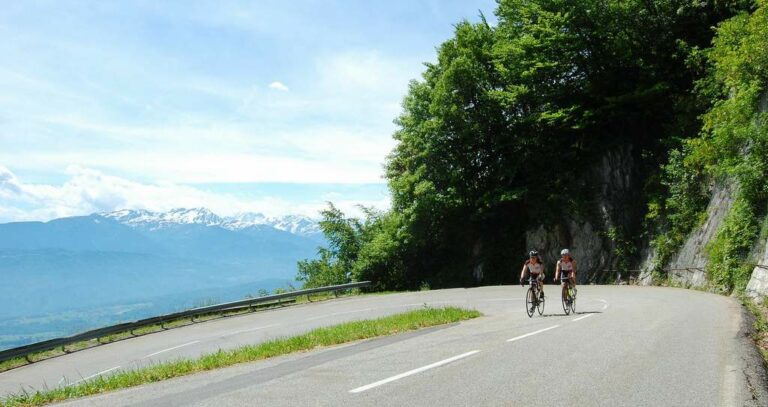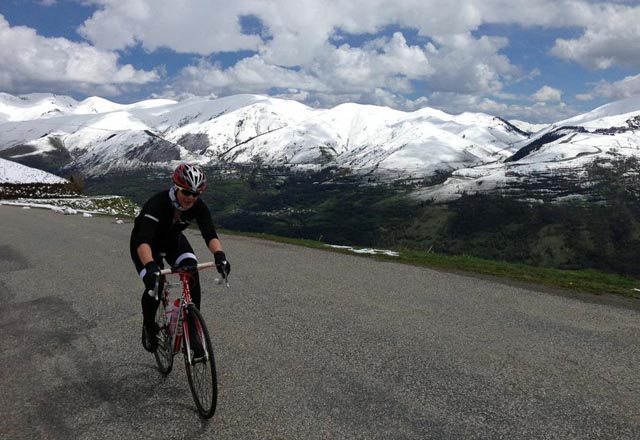After competing in Cape Epic, a mammoth mountain bike stage race held over 8 days, Rachel Fenton shares how to get involved and prepare for such an epic challenge.
It never gets easier, you just go faster.
When Greg Lemond said this he wasn’t talking about stage racing, but he might as well have been. To me mountain bike stage races are the ultimate challenge both physically and mentally and having spoken to many of the top racers this never changes, however fast you can ride.

This year’s stage races have seen top teams compete with illness, animals running into bikes, riders going off course, along with the more traditional issues of mechanicals and the weather.
In the mountain biking world, stage races are generally 4-8 days in length. Each stage is approximately 50-100 kilometres long and depending upon the terrain can take up to 10-hours to complete. There are a few races which include a shorter ‘prologue’ stage and others which include a time trial (sometimes they are the same). However the specifics, the general idea is the same – mass start, with the winner the person who completes the whole event in the shortest cumulative time.
Winning isn’t the aim for most of us mere mortals though, we simply want to get to the finish in one piece.
This was definitely my ambition when I agreed to do the Cape Epic this April. I hadn’t really considered stage racing before, well I had briefly thought about it every time my boyfriend came back from racing one, but when Collyn (Ahart) asked me if I was interested in going with her I suddenly got tempted. The opportunity to race in South Africa, alongside some of the best in the world was something I couldn’t really turn down. The more we talked about it the more excited I got.

Anyone who has considered running the London Marathon, or doing an Ironman will understand how the idea of such challenging events just gets in your head. You start to plan your bike riding around the specifics of the event and experiment with the other things you need such as nutrition and bike set-up. Compared to these other events though there is one unique additional factor to most MTB stage races, the team aspect.
For obvious reasons, mainly the remoteness of some race stages, the organisers of the longest stage races require you to ride with a partner, never being more than 2 minutes apart at any time. This adds an additional element to both preparation and racing. You try to squeeze in rides together to find out your relative strengths and weaknesses, you share the packing to try and keep bike bags within the required weight limits and then when you finally get to the race itself you have someone to share the experience with.
Looking after the other person becomes as important as looking after yourself.
I suspect that whatever cycling you have done beforehand, stage racing is a shock to your system. The first three days are ok, akin to a long weekend out riding in the hills. After that though, your body starts to question what you are doing until it simply accepts that you are getting back in the saddle and gets on with it. If you can do a full training camp before you go it is probably worthwhile, although I am not sure anything can completely prepare you for what the course designers throw at you.

There are relatively few female entries to most stage races, so organisers are always very welcoming. Despite the small numbers at individual events, there are many girls who have done these events over the years who are more than happy to offer a newbie any advice they need.
Post a question on Twitter and within minutes you have a flood of advice. There is also a strong tradition of success among the British women who have competed, including Sharon Laws who won the first ever Cape Epic in 2004; Sally Bigham the newly crowned British Marathon Champion who has won pretty much every big race on the calender and Cath Williamson who in the last 2 years has stacked up more podiums than I have fingers.
My advice to anyone considering a stage race would be – don’t consider it, do it!
It is one of the most rewarding and exhilarating experiences I have ever had. That said, the toll on the body should not be underestimated and preparation is key. This needs to include some long days in the saddle to get the bum used to it and to make sure your kit and bike set-up works over that time.
I was lucky enough to be loaned a full suspension Canyon Nerve to ride for the Cape Epic and this was certainly a great bike for riding over 8 days. Big volume tyres also help add to the comfort levels and of course you MUST ride a saddle that you know. In fact my advice would be the age old cycling motto;
Don’t try anything in a race you haven’t tried before.
Experiment, by all means, but by the time you get to the start line, have a bike you are happy riding, kit you know inside out and food that you know sits well in your stomach eaten over many hours and days.
If anyone out there wants advice on which stage races to do, or about any other aspects of the journey then by all means get in touch with me via Twitter.
Rachel’s stage race bucket list:
- Sudety Mountain Bike Trophy, 4-day individual race in Poland. Looks like great trails and fantastic value for money
- Alpentour Trophy, Based out of Schladming in Austria and includes an uphill time-trial. Every other day finishes on an awesome downhill
- Joberg2C, One of the other big South African race. Everyone keeps telling me it’s awesome, so now it’s on the list.
Top 5 tips to prepare for a mountain bike stage race
- Pack for all weathers – you never know what will happen. Even in South Africa they have been known to have storms that left riders hypothermic.
- Carry the tools you need to make sure you can get your bike to the next feed station and learn how to use them. This includes a proper pump, chain tool, rear mech hanger and a couple of inner tubes for me.
- Practice your eating strategy. As important as riding your bike is, making sure you stay fuelled is important too. I found I needed different food for a multi-day race than I did for a single day.
- Find a friend. Even if the event you enter is not a team event, its always good to get advice from people who have done stage races before and if possible to travel out with someone. Ask around, use social media, us cycling folk are always happy to dish out advice and often know someone else competing, its a small community!
- Forget training, ride your bike and enjoy it. If you worry too much about training you’ll not remember why you’re doing the event. Whether its a personal challenge or you are there to win, the joy of stage racing is that you see amazing scenery in amazing parts of the world! So make your preparation part of that journey.





